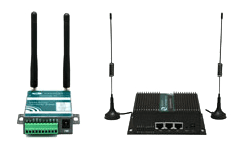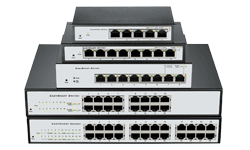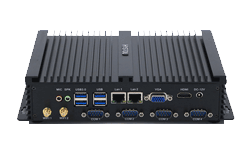Difference between ordinary routers and industrial routers
There are four main differences for home and industrial routers as follows:
1.Industrial 4G router is a wireless communication router for the Internet of Things, which provides users with wireless long-distance data transmission function by using public network. A device that can connect two or more networks to transmit signals only to the desired port. The price is more expensive, the function is stable and powerful. Normal 4G routers are relatively cheap. The advantage is that it is suitable for large-scale enterprise network connections, and can adopt complex network topologies, load sharing and paths.
2.General industrial 4G routers are mostly used for data transmission and other functions, and there are hundreds of them. If so many people want to meet the wireless Internet needs at the same time, there are very high requirements for the forwarding performance and the number of routers. However, ordinary 4G routers have low density, low signal strength, small coverage, limited forwarding performance and band capacity.
3. Industrial 4g router with ethernet generally have multiple services and richer routing protocols, such as SNMP, static router, policy router, unified management protocol, etc. Through these protocols, industrial routers can guarantee network operation and protect user data from being stolen.
4, Industrial grade product design, more suitable for long-term use. In general, routers don't use them for too long, so they have plenty of time to "rest". However, industrial 4G routers are different when using routers. Due to the needs of work, routers are even required to operate 24 hours in most of the time, which puts forward higher requirements for the industrial design of routers.
The main difference between these two routers is the word "industrial". At industrial grade, it can be used outdoors or in harsh conditions.

 Networking
Networking EMBEDDED SYSTEMS
EMBEDDED SYSTEMS Switches
Switches Wireless Solutions
Wireless Solutions Industrial Computer
Industrial Computer Cloud Services
Cloud Services



